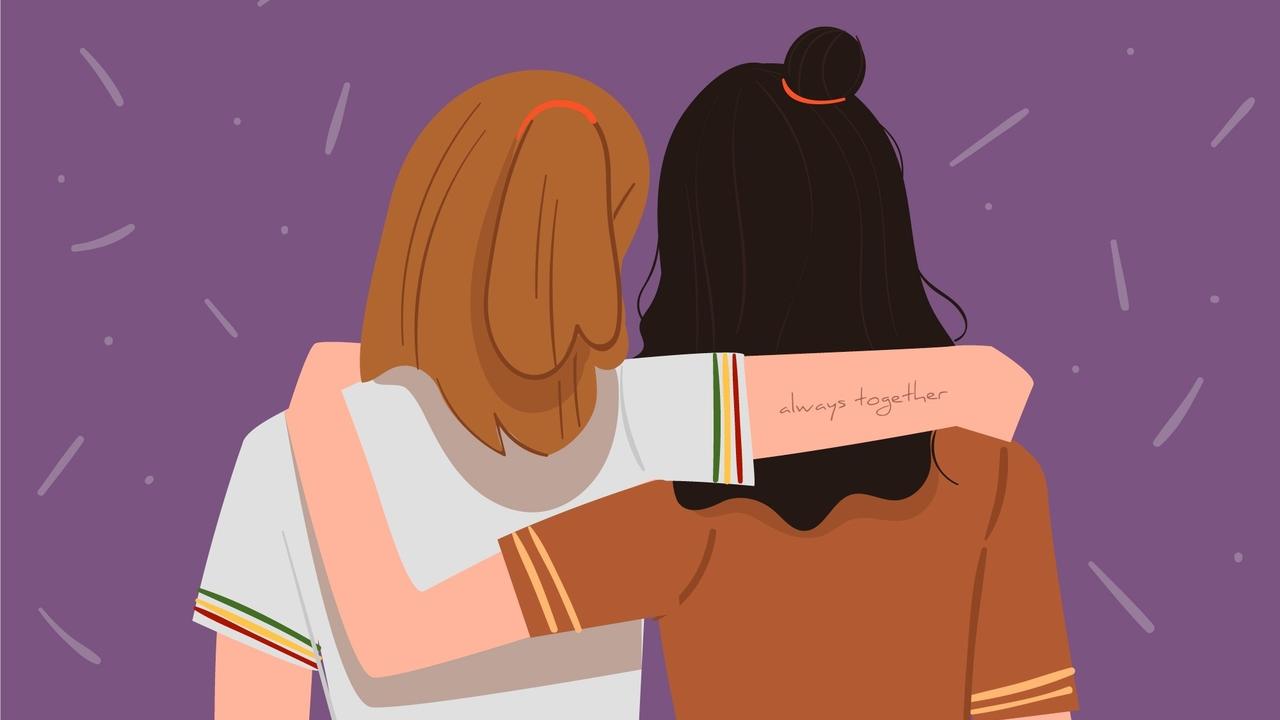What To Say When A Friend Is Hurting

Let’s face it- we are dealing with unusual times. Some people can deal with it; some have a harder time. Anxiety affects 18.1% of the population, almost 1 in 5 in the U.S. alone — maybe it’s even higher these days. And according to the WHO, depression is the leading cause of disability worldwide. It’s a good time to look into what to do if people around you, especially friends, are having a hard time.
How can you tell if a friend is depressed?
According to the ADAA (Anxiety and Depression Association of America) in men, depression shows up as tiredness, irritability, and anger. In women, depression tends to present as sadness, low self-esteem, and guilt. But that is not hard and fast — it could be the reverse too.
While some people lash out in anger, others may tend to withdraw. Losing interest in things they used to love, hopelessness, exhaustion, and insomnia, thinking about death, uncontrollable emotions… It extends beyond situational sadness, like the grief after a pet dies - this lingers and grows.
The question is have you seen any changes in your friend lately?
Most people don’t know what to say, when, they see their friend suffering. You want them to feel better, but don’t know the words to let them know. Here are three approaches that can help.
- Remember, It’s Not Personal:
If a friend lashes out for no reason; if you sense they feel that no one wants to be with them; or if you are putting a lot of energy into having a conversation, and they say, “I’m too tired to talk, it’s not a good time,” this is not a failure on your part.
Caroline Leaf, a clinical psychologist explains, “People can be difficult when they are depressed, but we should not take this personally, which often happens when one friend is depressed and tends to lash out at the other friend.” According to psychiatrist Dr. Gail Saltz, “They may say, ‘no one would want to be with me’ or ‘I have no energy to engage in conversation’ but that is the chemical depression talking.”
“Depression does not take away a friend’s DESIRE to connect with you; just their ABILITY.”
Look at where you are coming from too. You may over-identify with a depressed friend, which can make you feel depressed, and you may want to keep away. Or you might take it as a mission to “fix” them, and feel bad if they are not responding. Again, it’s not personal — often this is years in the making and related to the body’s biochemistry in motion.
- When You Come Together
DO’s
- Check in on each other often— create space to vent, express, reflect.
- Exercise together — go for walks, do a virtual yoga class and connect afterward.
- Explore new perspectives; like engaging them in thoughts and plans about a brighter future.
- Encourage real talk, real feelings, and an atmosphere of empathy.
DON’T’s
- Don’t make them feel that they have to be “happy” to be accepted.
- If you are aware of the signs of depression and see that in them, don’t be misled that a distraction (like “let’s have a drink”) is the solution.
- Don’t judge anything that they are afraid or ashamed of, or that is upsetting them.
- Validate and Listen
When in doubt it helps to say a genuine, “I’m so sorry.” Let them know it’s OK to feel bad; this thing sucks, I wish this hadn’t happened to you. Dr. Leaf recaps: “Your compassion validates their experiences by acknowledging that their pain is real. Doing this actually changes the resilience in the brain (through a genetic switch), which can help that person see their problems in a new light and start sorting through their issues.”
Listen not to give your solutions, but to help them process their pain.
This shows not only: I’m there for you, but better yet, I’m here WITH you.
In conversation:
Rachel Wilkerson Miller, author of The Art of Showing Up: How to Be There for Yourself and Your People offers some useful questions.
- Follow your friend’s cues — Ask: “How are you feeling about that?”
- Don’t report the stats to show that this happens to so many people (breakup, death, divorce, miscarriage.) It doesn’t help at the moment.
- Instead of asking the general: How can I help, say: “What’s the best way I can support you right now?” It may be getting groceries or accompanying them to a doctor’s appointment or even walking their dog.
- Don’t bring up your own experiences or stories — listen to hear rather than respond.
- You might ask: “Do you need someone to vent to? Or would you like my advice? You know I went through something similar a while ago, if you want to hear about it later, let me know.” You are giving your friend choices.
- One therapist suggests, “If you do feel the need to talk, frame everything as ‘I may be wrong but’ or ‘I could be reading you wrong’ and so on. If they react negatively, remain calm, and just listen.”
Above all, remember, It’s not all on your shoulders. Help create a support team with other friends or family and remind your friend that professional help is not something to be ashamed of — it can be a lifeline and a path through to the other side.
And take care of yourself in the process. To be a good friend to others, keep your emotional reservoirs high, and be a good friend to yourself too.
